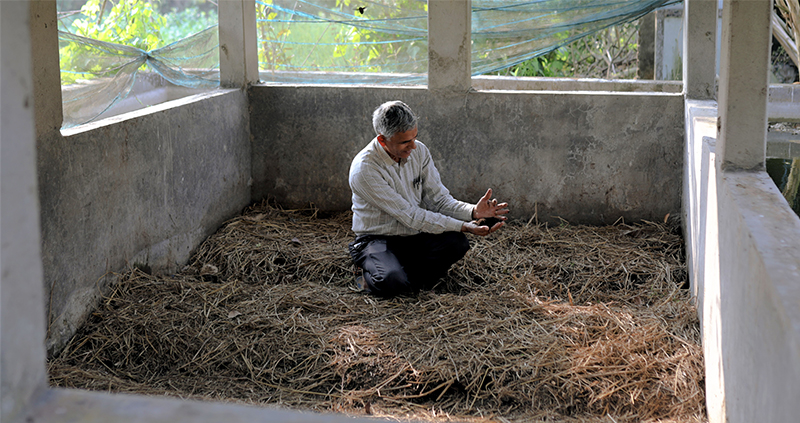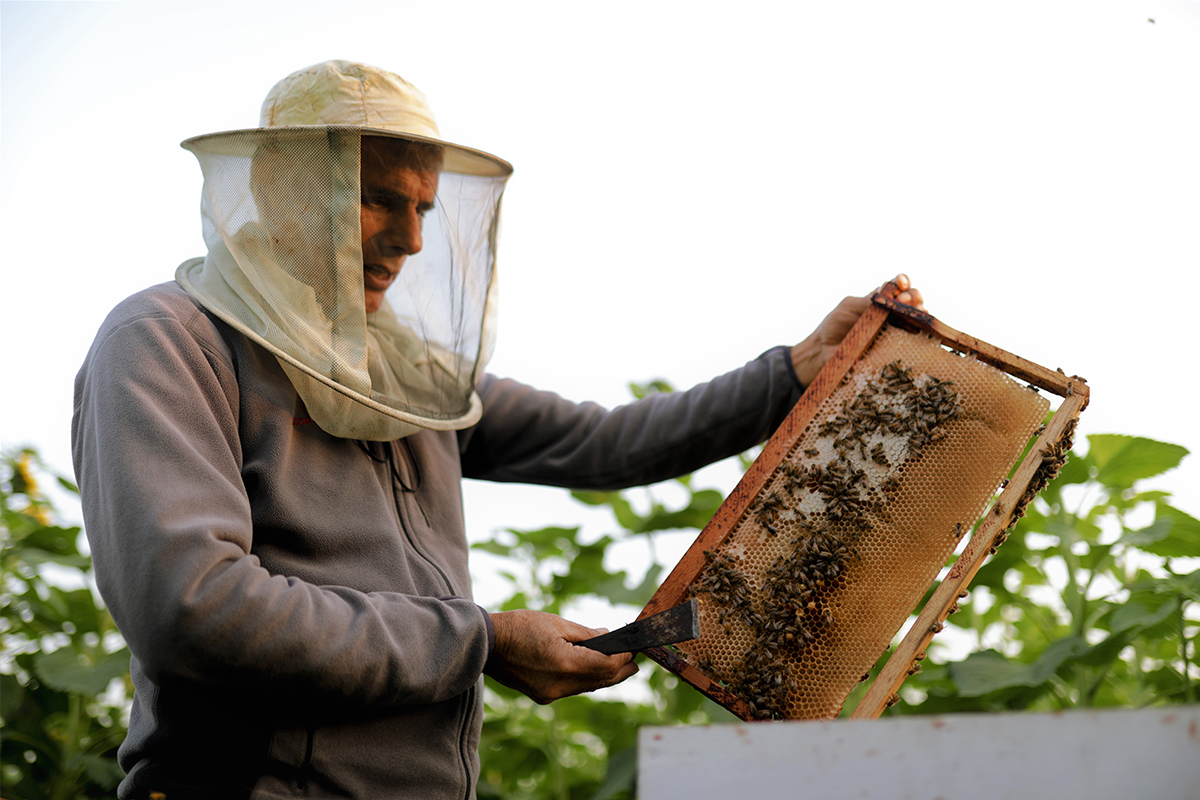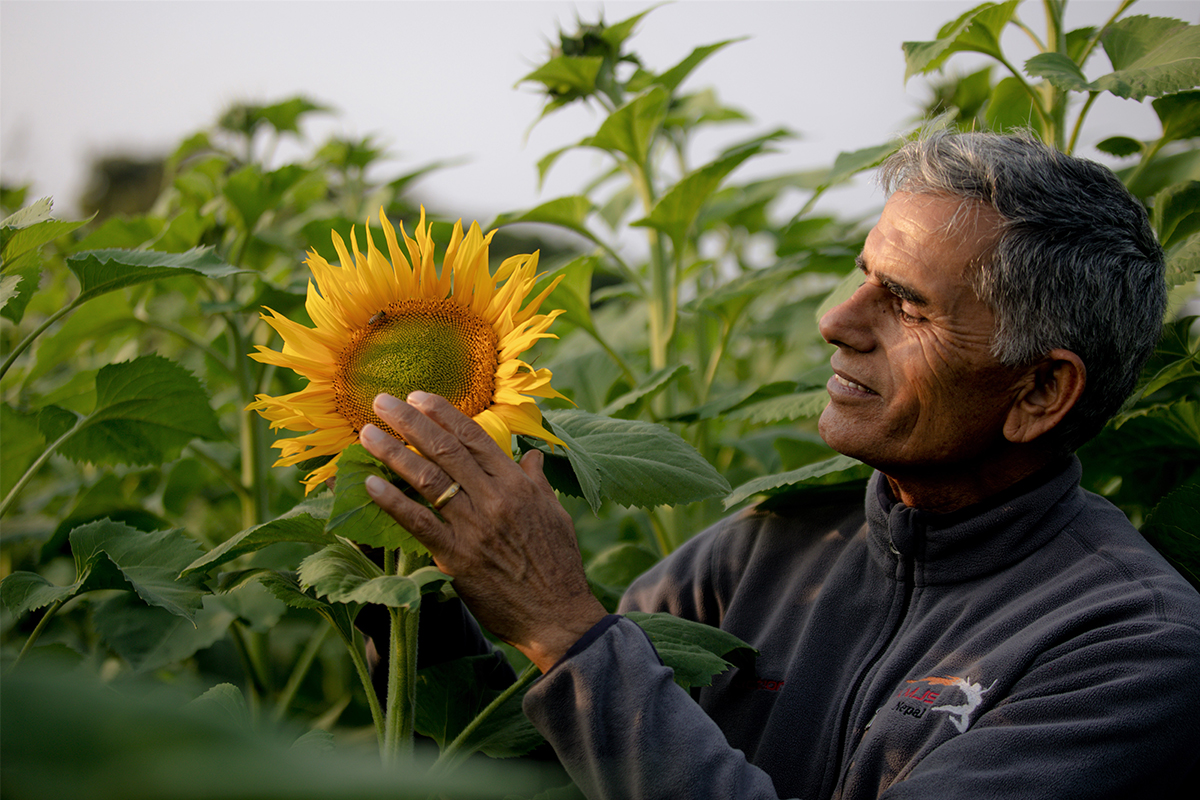The ‘Organic Uncle’ of Chitwan
A farmer on the verge of giving up turned things around for himself and othersEvery year, Chandra Prasad Adhikari suffered losses on his farm. For years, his tomato crop did not earn enough to sustain itself.
In 1988, he even brought in agronomists to test the soil, and planted new varieties. The batch sprouted upwards within a month only to be wiped out by cotton bollworms when it was time for harvest.
Read also: "My children shouldn't be farmers," Anita Bhetwal
Frustrated, Adhikari used the chemical pesticide democrene to kill the bugs under the recommendation of an entomologist. That too failed, as the bugs were immune to the pesticide. “I was tired to the point where I wanted to give up agriculture,” recalls Adhikari.
Then the entomologist, Phanindra Neupane, a professor at Rampur Campus, suggested switching to organic farming. Adhikari’s father Badrinath had also previously practiced organic farming and his 2.5-hectare farm had produced maximum yield.
“My father never used chemical fertilisers. When the extension workers came to the village to promote urea, he sent them away saying our cattle manure was enough to give good crops,” recalls Adhikari who then took to organic approach, especially after finding out that chemicals had hardened the soil and reduced fertility.

Adhikari improved the cowshed, collected dung and used it in the farm. The results were not instantaneous. It took time for the organic methods to reverse the damage caused by years of agro-chemical abuse. He also joined the group Digo Krishi Society and Bhakaro Reform Program.
By 1993, Adhikari’s investment had paid off. His carrot plantation was especially successful for which he credits Bhakaro Reform Program that taught him various techniques of making organic fertilisers. In the subsequent years, his farm produced more crops than his neighbours' that used chemical fertilisers.
Read also: Biodynamic agripreneurs, Sanjib Chaudhary
Soon, he had people coming to him to learn about organic farming, including students from Rampur Campus.
At a training program on organic agriculture in Kathmandu, Adhikari met Neupane once again. He gave him books on managing pests and manure via organic methods. It was after reading those books that Adhikari realised the real meaning of organic farming – one that is done without harming the environment and through the use of local resources and skills.
“I started preparing fertilisers at home. The best ones were made by farming earthworms,” says Adhikari. “My method of farming organically was also recognised by the government following a soil test from the Nepal Institute of Science and Technology.”

Next, Adhikari stopped planting the crops in favour of sunflower oil seeds which is financially more beneficial, but by then he was running his farm just on insects and home-made pesticides. “My income has doubled since going organic and making my own pesticides.”
Read also: Waste to value with biogas in Nepal
Adhikari also established an organic agriculture cooperative in 2013 which now serves as a learning centre for 230 farmers. For someone who was once on the verge of leaving farming, he is now known as ‘Organic Uncle’ for influencing many towards soil conservation.
And for the past 13 years, Adhikari has also been involved in collecting rice seeds for future use. So far, he has collected 110 varieties which he has submitted to the National Gene Bank in Kathmandu.

“Rice varieties have been disappearing for generations,” says Adhikari. “Just as powerful nations have taken hold of fertilisers and various seeds, Nepal should be self-sufficient when it comes to rice seeds.”
Read also: Corruption and Nepal's chronic fertiliser crisis
After 35 years of organic farming, Adhikari sayslike how healthy mothers give birth to healthy babies, we need chemical-free soil for a good yield, which in turn is crucial for healthy living.
Says Adhikari: “Organic farming needs patience, especially to revert all the damages previously done to the soil by chemicals. After that, there is nothing but prosperity for the farmers, there is no loss, and they are also healthier not having to handle all those toxins.”




